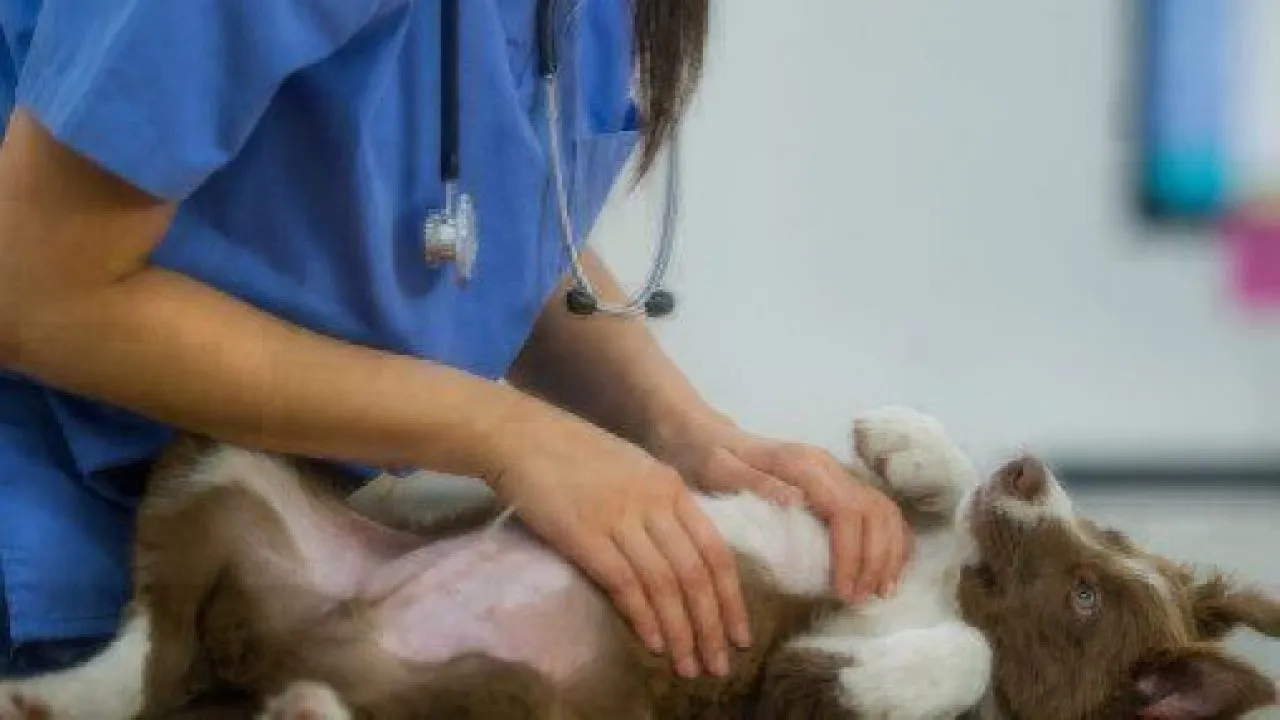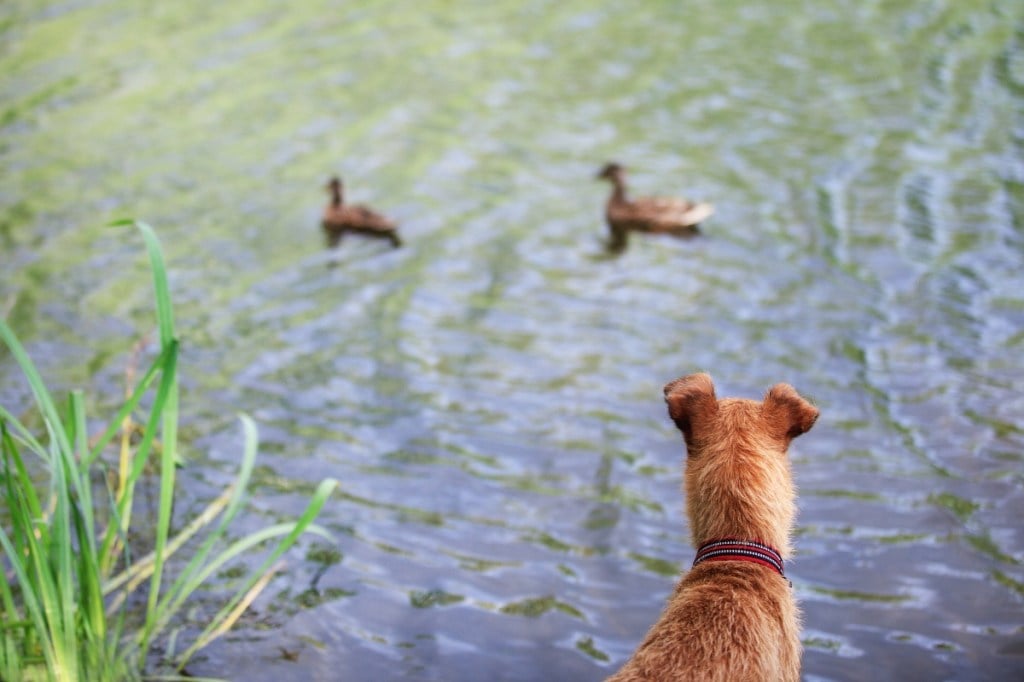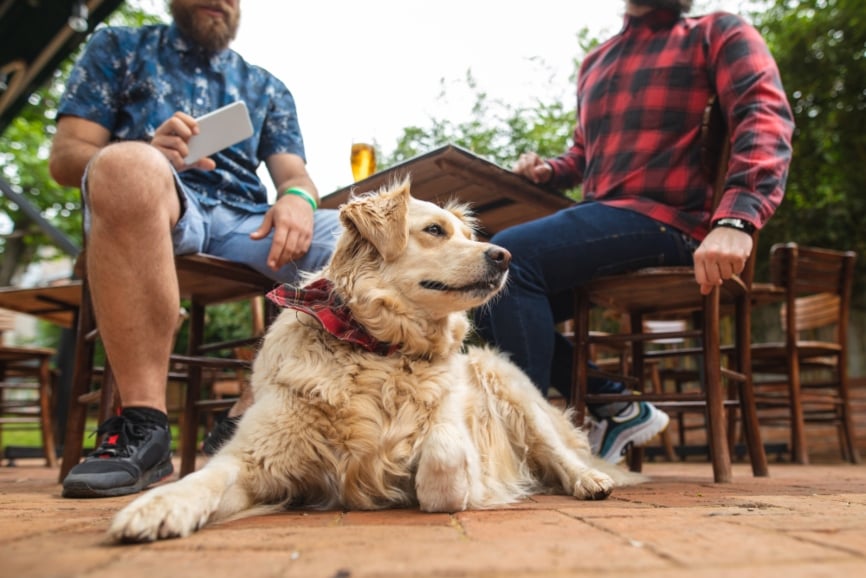Table of Contents
Puppies’ digestive systems are extremely sensitive during the first year of their life. There are many conditions that your puppy can develop, some of which are more serious than others. If your puppy experiences diarrhea, vomiting, or refuses to eat, make an appointment with your vet, as symptoms and conditions can escalate in those little bodies! Here are three puppy digestive issues with their symptoms, treatments, and some preventative measures.
E. coli Infection
The proper name for an E. coli infection is “colibacillosis.” E. coli naturally occurs in mammals’ intestinal systems and can help with digestion. However, this bacterium can sometimes can cause unwanted symptoms, especially in newborn pups. Colostrum, which is the milk that a pup’s mother produces on the first day after birth, coats puppies’ digestive systems, preventing bacterial infections. There are two ways puppies can acquire colibacillosis – lack of mother’s milk, or the mother is infected and passes the bacteria on to her pups.
Symptoms of an E. coli infection include lack of appetite, vomiting, lethargy, diarrhea, and cold skin. Treatment consists of hospitalization, antibiotics, and restoration of body fluids – prompt veterinary care is required, as puppies’ immune systems are very weak. You can prevent this infection by ensuring that the mother is healthy and receiving proper nutrition before, during, and after pregnancy. Also, prepare a clean birthing environment and make sure that the puppies have enough of their mother’s milk.
Campylobacter Infection
Campylobacter is a bacterium that most commonly infects puppies less than six months old. Like E. coli, Campylobacter can be found normally in an animal’s digestive system. Campylobacteriosis is a zoonotic disease, meaning that it can crossover to humans (in 2017, pet store puppies were responsible for a nasty bout in people).
Around forty-nine percent of all dogs have Campylobacter within their digestive system and pass it in their feces. Dogs who eat those feces can acquire campylobacteriosis. Contaminated water and food can also cause infection. Puppies are at a higher risk for acquiring campylobacteriosis because their immune systems are underdeveloped.
Symptoms of campylobacteriosis consist of fever, vomiting, loss of appetite, and enlarged lymph nodes. Treatment encompasses antibiotics, replenishing of fluids, and close monitoring, depending on the severity of the infection. Preventative measures that can be taken include cleaning your dog’s living areas, picking up your dog’s feces, and disinfecting food and water bowls.
Giardia Infection
Giardiasis, caused by the parasite Giardia, is one of the most common infections in puppies – up to 50% of all puppies will be affected by it. Puppies can get infected if they drink contaminated water, play in contaminated soil, or come into contact with another dog’s infected feces. Puppies can get very sick from giardiasis because of their weakened immune systems.
Giardiasis in puppies causes severe and watery diarrhea that is often foul-smelling and might even be green. Other symptoms include weight loss, fatigue, and loss of appetite. Treatments consist of prescription medications to kill Giardia, rehydration, and a highly digestible diet, along with follow-up appointments with your veterinarian to ensure that the infection has run its course. Preventing giardiasis involves keeping your dog’s living area clean and dry, picking up your dog’s feces, and providing fresh, clean drinking water.
Puppies are especially susceptible to diseases due to their underdeveloped immune system. These three illnesses are most common in puppies, and can be fatal if left untreated. Keep a close eye on your pet, and seek veterinary care if any of the mentioned symptoms arise.
The content is not intended to be a substitute for professional veterinarian advice, diagnosis, or treatment. Always seek the advice of your veterinarian or other qualified health provider with any questions you may have regarding a medical diagnosis, condition, or treatment options.









